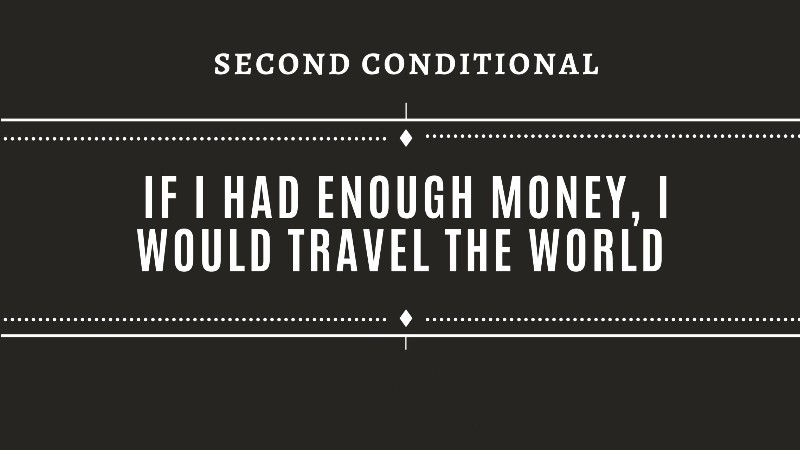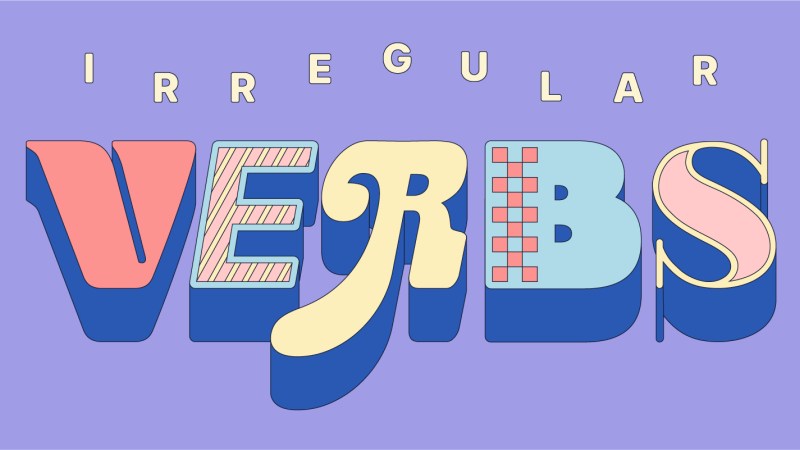
我们会用第二条件句来表示现在或未来的假设或不真实的情况。
If I won the lottery, I would buy a yacht. 如果我中了彩票,我会买一艘游艇。
If I had a better salary, I could travel more. 如果我有更好的薪水,我可以旅行更多。
If I were you, I might wait before making a decision. 如果我是你,我可能在做决定前等待下。
If it weren’t for his help, I might be dead now. 如果不是他的帮助,我现在可能已经死了。
第二条件句的用法
If 从句和主要从句
我们用 if + 过去式,来表示一种假想中的现在或未来的状况(虽然动词是过去式,但时间是表示现在或未来)。而我们用 would + 不定词来表示这个假想情况的结果。
If I had a swimming pool in my yard, I’d go every day. 如果我的院子里有一个游泳池,我会每天都去。
Would you call him if you got his phone number? 如果你知道他的电话号码,你会打电话给他吗?
加逗号
当 if 从句在前面的时候,我们通常会在 if 从句后面加个逗号;当主要从句在前面、if 从句在后面的时候,我们通常不加逗号。
如果你来参加聚会,你会跳很多舞。
If you came to the party, you’d dance a lot.
You’d dance a lot if you came to the party.
句中 would 的用法
would/wouldn’t 在所有的人称中都是一样的用法。
I/you/he/she/it/we/they would/wouldn’t do that if it was possible.
缩写的方式: wouldn’t= would not,‘d= would
I’d never pass my test if you failed to bring my books. 如果你不带我的书,我永远不会通过我的考试。
I wouldn’t pass my test if you failed to bring my books. 如果你不带我的书,我就不会通过考试。
句中 could 的用法
在主要从句中,我们通常可以用 could + 不定词,来代替 would +不定词。
If you wrote the book, you could give me a sign. 如果你写这本书,你可以给我一个签名。
要用 was 或 were?
在第二条件句中,我们可以用 if I/he/she/it were(较为正式)来代替 if I/he/she/it was。
If he were/was a good singer, he would win the contest. 如果他是/是一个好歌手,他会赢得比赛。
但是当我们用 if I were you这样的句型来表示给予某人建议时,我们用 were(请注意,不是 was)。
If I were you, I would break up with him.
I wouldn’t go to that restaurant if I were you.
第一条件句 VS 第二条件句
我们用第一条件句来表示可能的未来状况,而用第二条件句来表示假设性或假想中的未来状况。
如果下午晚些时候我没有预约医生,我一定和你一起去购物。
If I don’t have a doctor’s appointment later in the afternoon, I’ll have to go shopping with you. (这是有可能的,也许我明天没有和医生挂到号,所以可以和你一起去逛街。)
If I didn’t have a doctor’s appointment later in the afternoon, I’d have shopped with you. (这是假设性的,因为我明天已经向医生挂号了,所以不可能和你一起去逛街。)
第二条件句 – 练习题



Comments